This is a guest article by Paulita E. Kundid, FAPR, RPR, CLVS, FPR. Paulita is President/CEO of Volusia Reporting Company & Videoconferencing Center in Daytona Beach, FL. This article was originally published on the Florida Court Reporters Association’s website. While the article discusses Florida specific examples, this topic is relevant in Michigan and throughout the United States.
Risky Business
Ethics are important to your bottom line. What you need to know.
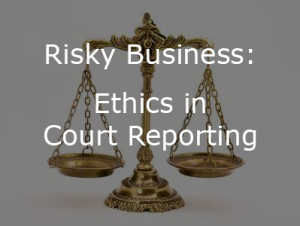 Everybody loves something for nothing. Marketing wizards know getting “freebies” is an effective marketing tool for business solicitation, including businesses providing services to the legal profession.
Everybody loves something for nothing. Marketing wizards know getting “freebies” is an effective marketing tool for business solicitation, including businesses providing services to the legal profession.
Recently, there has been an increase in the number of “incentive gifts” or “reward programs” offered to attorneys and their staff in exchange for scheduling depositions with a particular reporting company/vendor. Incentive offers are pervasive in almost every industry. Airlines, hotels and credit card companies offer them so it’s easy to see why attorneys and staff don’t understand why these practices are so detrimental to the legal profession.
There are real scenarios of Florida court reporting agencies sending attorney’s staff $1000 in exchange for shifting all depos scheduled on one company’s books to another. Big screen TVs, computers, and gas cards and gift coupons in the amounts of $25, $10 and $5 are being exchanged for each depo scheduled. Some agencies are sending the gift cards directly to the secretary’s home address to intentionally avoid the office.
Attorneys may not be aware of their staff accepting gifts from court reporters/vendors in exchange for procuring work. The legal assistant is exposing her boss to discipline by the Florida Bar. Incentive programs that offer these temptations accepted by attorney’s staff place the attorney in jeopardy of his own code of ethics and can even violate FSC Rule 4-1.8: Conflict of Interest – and Bar Advisory Opinions. The attorney is fully responsible for any actions by the legal assistant. Not disclosing receiving gifts to your client, who is ultimately the legal receiver of such gifts, may result in ethical and tax consequences for those who receive the gifts.
The Florida Court Reporters Association has addressed the issue in its Code of Professional Ethics stating its members shall: Refrain from giving, directly or indirectly, any gift, incentive, reward, or anything of value to attorneys, clients, or their representatives or agents, except for items that do not exceed $100 in the aggregate per recipient each year.
Marketing items of nominal value, such as pens, pencils, coffee mugs, cookies and other advertising paraphernalia, or modest forms of meals and entertainment, or Holiday “thank you” gifts not exceeding $100 in aggregate value are considered nominal and are permissible under the Florida Court Reporters Association’s Code of Professional Ethics.
An attorney is responsible, and therefore their legal assistant, for hiring the most competent and reasonable service providers for the client, such as subpoena servers, court reporters, investigators, and so on. They are not allowed to profit from these services. That is why attorneys cannot add commissions or service fees, etc., to service-provider invoices like court reporters. They are only allowed to be reimbursed on the actual costs and they are only allowed to tax costs on the actual costs.
There are ramifications with IRS — this is considered income to the law firm. Rewards or incentives such as cash, Visa gift cards, gas coupons, expensive gifts, the value of sporting event tickets, etc., must be reported to IRS as income and any taxes due must be paid.
Additionally, according to the Hanson Bridgett legal opinion on incentive gifts in exchange for deposition bookings, these transactions are considered income, not gifts, by the IRS. This could adversely affect your victory in a case where taxable costs are awarded.
This practice of giving out coupons to law firms prompted an Orlando attorney to take a unique position on the costs being taxed against his client. By demanding that the amount of the costs taxed against his client be reduced by the value of the coupons or gifts received by opposing attorney’s legal assistant for scheduling the deposition(s); that only the balance on the invoices could be taxed as costs and not the full amount.
The fair market value of the gifts received by staff can be deducted from your client’s award.
Insurance companies are sending out notices to court reporting firms banning gifts between the attorneys representing them and court reporters: “Gifts and Gratuities: Insurance companies ban any gift, favor, gratuity, or entertainment given by court reporting companies/vendors in order to influence a business transaction or to initiate a business relationship where one did not previously exist. Experience has shown that the relationship between insurance adjusters/examiners, attorneys, body shops and vendors must be safeguarded such that the appearance of impropriety must be avoided. Gifts of any amount are not permitted.”
Florida Bar’s Rules of Professional Responsibility outlines the 22-page “cure” should your staff accept “incentive gifts” or “reward programs” in exchange for services. Law firms should implement staff policies and enforce them. Protect your clients, your staff and yourself against Risky Business.
For more on court reporting ethics from our perspective, download this free report: “Thoughts on Court Reporter Ethics: From a Court Reporting Firm Owner”.
 While a court reporting career can be greatly rewarding, there are times when the responsibilities of the job can be stressful. This stress can be compounded by the added stress of balancing work life and family life. Every court reporter needs to develop ways of handling stress when levels are high. By having a plan in place for handling stressful situations, you are able to more quickly release the panicky feelings of overwhelm.
While a court reporting career can be greatly rewarding, there are times when the responsibilities of the job can be stressful. This stress can be compounded by the added stress of balancing work life and family life. Every court reporter needs to develop ways of handling stress when levels are high. By having a plan in place for handling stressful situations, you are able to more quickly release the panicky feelings of overwhelm.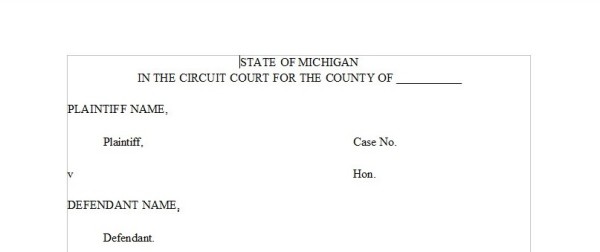

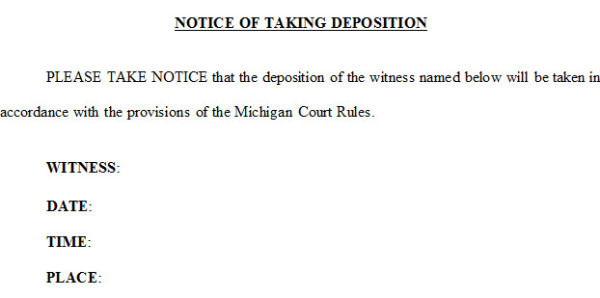

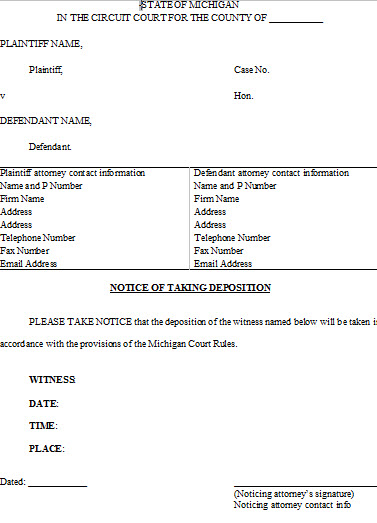
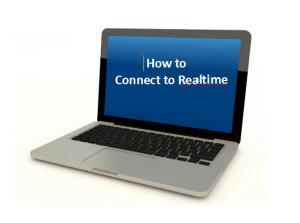 At O’Brien and Bails, we have been providing realtime transcription for quite some time. Our clients find great value in viewing the transcribed spoken word as it is happening. If you’ve never connected to realtime in a deposition before, you may think it is technically difficult. But connecting to realtime is actually simple. Once you know what is involved, you will see that using realtime in your next deposition can be easy and of great value to you and your clients.
At O’Brien and Bails, we have been providing realtime transcription for quite some time. Our clients find great value in viewing the transcribed spoken word as it is happening. If you’ve never connected to realtime in a deposition before, you may think it is technically difficult. But connecting to realtime is actually simple. Once you know what is involved, you will see that using realtime in your next deposition can be easy and of great value to you and your clients.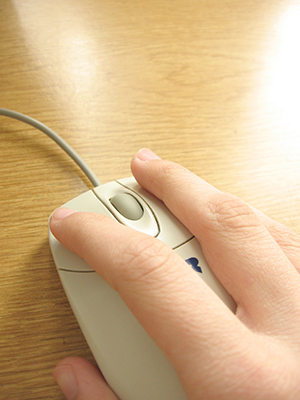 With technology moving so fast, it is difficult these days to keep up with the ever-changing ways to handle electronic files and transcripts. If you have ever received a transcript in a file type that your computer won’t open, you know how file types can be an obstacle. However, there is one type of file that is a clear winner in compatibility, the Portable Document Format, otherwise known as a PDF.
With technology moving so fast, it is difficult these days to keep up with the ever-changing ways to handle electronic files and transcripts. If you have ever received a transcript in a file type that your computer won’t open, you know how file types can be an obstacle. However, there is one type of file that is a clear winner in compatibility, the Portable Document Format, otherwise known as a PDF.